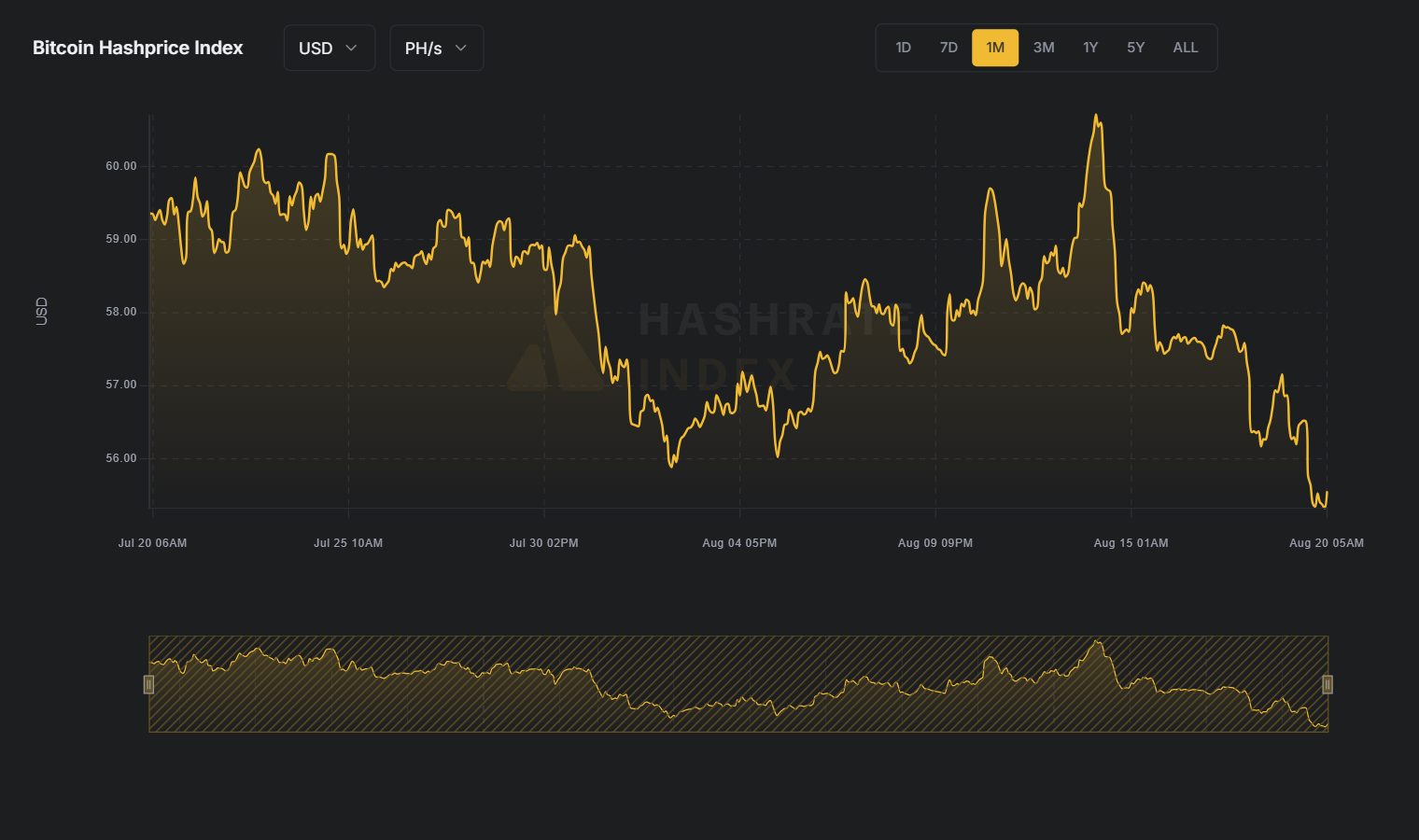The problem of Bitcoin reaches a brand new all-time excessive, round 129 trillion, in line with updates from August 2025. In parallel, the common hashprice stays near $60/PH/s (estimates from Hashrate Index), whereas in the USA, {hardware} importers for mining face tariffs as much as 57.6% on ASICs. A context that tightens margins and forces many operators to rethink their methods.
Throughout our qualitative monitoring of company communications, regulatory experiences, and business articles up to date to August 2025, we discovered {that a} vital variety of operators have revised their funding and procurement plans.
The analysts we consulted point out that top tariffs and document problem make a slowdown in new ASIC orders extra probably and a larger give attention to operational effectivity. These findings are in keeping with the general public knowledge and with the unbiased analyses accessible in business literature.
Bitcoin Problem at 129T: which means and context
The problem signifies how “arduous” it’s to mine a brand new block: it will increase as the worldwide computing energy (hashrate) grows, with the intention to maintain the common time between blocks round 10 minutes. The height at 129T displays the entry of extra environment friendly {hardware} and the growth of huge farms, with direct results on the unit manufacturing prices of every BTC.
In operational phrases, the next problem ends in decrease chances {that a} single hash is profitable. On this context, with the BTC value being equal, the revenues per unit of energy are inclined to lower.
Hashprice at $60/PH/s: margins beneath strain
The hashprice is the estimated income per unit of hashrate (for instance, {dollars} per PH/s per day). With the issue at its peak, the indicator is round $60/PH/s, indicating a extra compressed profitability in comparison with earlier phases of the cycle.

The profitability for Bitcoin miners collapses on account of tariffs launched by Donald Trump. Supply: Hashrate Index
This ends in a compression of margins: miners with excessive power prices or with much less environment friendly machines (excessive consumption in W/TH) are the primary to really feel the influence. It ought to be famous that, for a lot of operators, the break-even level shifts upwards, growing sensitivity to fluctuations within the spot value of BTC.
Commissions reducing: charge share beneath 1% in July 2025
Within the month of July 2025, the charges accounted for lower than 1% of the block revenues. Which means the predominant share of miners’ revenue comes from the fastened reward (at present equal to 3.125 BTC, in keeping with the halving cycle), making money flows extra uncovered to modifications in problem and the spot value.
When the charges stay depressed, the volatility of month-to-month revenues tends to extend: even small deviations in value or problem can considerably influence general profitability.
Tariffs on ASICs at 57.6%: influence on CAPEX and provide chain
The latest commerce tightening in the USA introduces tariffs for importers of mining {hardware} that may attain as much as 57.6%. The impact is a extra burdensome CAPEX to resume or increase the machine fleet, with attainable logistical delays and larger capital immobilized alongside the provision chain.
Two latest circumstances spotlight the scope of the difficulty: CleanSpark reported a possible publicity of as much as $185 million, whereas Iris Vitality acquired a declare within the order of $100 million. Each corporations are difficult the calls for of the U.S. customs.
Sensible results of tariffs
- Enhance in unit price for the acquisition of recent ASICs and spare elements
- Supply instances longer and bigger shares to mitigate dangers
- Growth plans reshaped, with growing give attention to power effectivity per watt
- Contenziosi and accounting uncertainty on potential liabilities
Prospects 2025: break-even, consolidation, and dangers
In 2025, the profitability of miners will rely upon three central variables: the price of power, the community problem, and the hashprice. With problem at its peak and low charges, the break-even level shifts increased. Doable implications embrace consolidation of the sector, a slowdown in ASIC orders, and elevated relocation to areas with extra aggressive power.
A lower in problem or a restoration of the hashprice may supply non permanent aid; nonetheless, structural components – persistent tariffs and excessive power prices – require deeper strategic responses. An fascinating side is the completely different resilience amongst operators, linked to power combine and contract construction.
The strikes of the miners: effectivity, hedging, and adaptability
- Vitality optimization: renewal with extra environment friendly machines, immersion cooling, participation in demand response applications
- Provide chain: diversification of suppliers, nearshoring options, and renegotiation of contracts
- Hedging: protection on BTC and devices linked to the hashrate (e.g., specialised indices and derivatives, like these supplied by Hashrate Index)
- Vitality combine: larger share of renewables and use of in any other case wasted power
Affect in the marketplace and eventualities
The strain on revenues may set off a pure choice: operators with excessive OPEX would possibly cut back exercise or divest belongings, leaving room for extra environment friendly gamers. In case of a rise within the BTC value or a lower in problem, margins can enhance; nonetheless, visibility stays restricted till tariffs and power prices converge to extra favorable ranges.
Associated Insights
- How Bitcoin mining works: hashrate, problem, and rewards
- Halving Bitcoin: what modifications for miners and for the market
- Bitcoin value immediately: quotations and market components
Abstract
Abstract: problem at 129T, hashprice round $60/PH/s, charge share beneath 1% in July 2025, and tariffs as much as 57.6% on ASICs within the USA. The 2025 outlook stays difficult for miners, coping with compressed margins and growing CAPEX. The longer term stability will rely upon the value of BTC, the price of power, and regulatory developments.
Transparency notice: the information introduced relies on public and up to date sources (Hashrate Index,Blockchain.com Charts,Cambridge Bitcoin Electrical energy Consumption Index).









